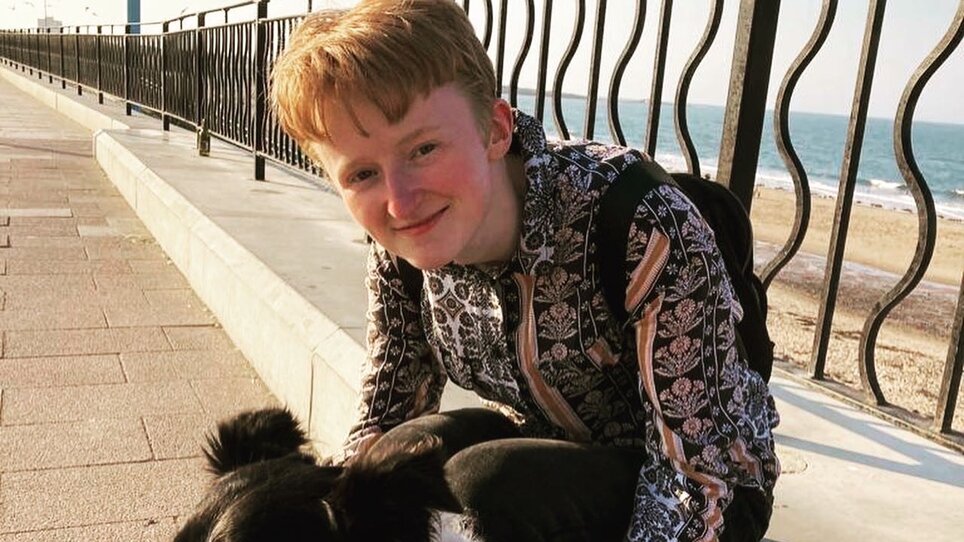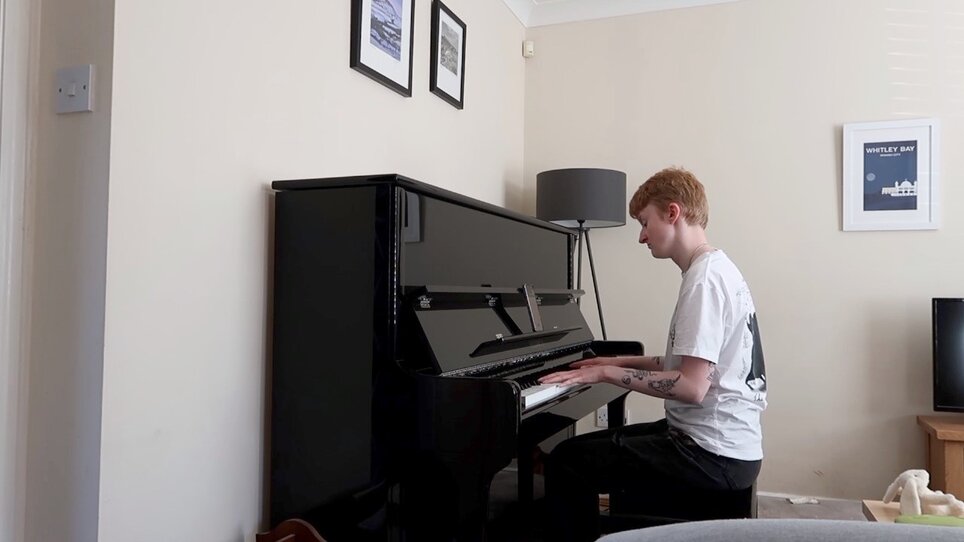Amber’s story
My story
Living as an undiagnosed autistic person was like being on the hardest level of a game with everyone else on the easy level asking you: ‘What’s so difficult?’ It’s getting used to being excluded in groups but not really understanding why. It’s sitting in classrooms with an overwhelming sense of anxiety from lights, noises and information overload. It’s being the last to understand a joke, and when you do, you don’t find it very funny but have to paste on one of many smiles.
My autism was very much highly masked through the years, my diagnosis being at age 24 after my own suspicion of a misdiagnosis of Borderline Personality Disorder, which has overlapping traits.
It was viewed as severe social anxiety. My interest and escapism have always been in books, which is not an unusual interest for a quiet, introverted person to have.
I assumed that everyone pretended in every social situation and then thoroughly analysed it afterwards.

I always saw the world so brightly that it became far too saturated and sharp to cope with. I might as well have been a neon green blob speaking an alien language around everyone else. I think the most crushing thing, though, is never feeling like I belonged. I firmly believed that people pretended to like me, from years of false friendships and bullies. As an adult, it is very strange to navigate friendships. People say they want to meet up but never actually intend to. They say they can call, and I wait beside my phone anxiously for a few hours, hearing no ring.
"It takes a while to feel properly comfortable within yourself, but you have plenty of time to figure it out. If you never completely figure it out, that’s also okay."
It was only from attending a neurodivergent group (for the ‘personality disorder’ at the time) that I realised how much I had in common with autistic people, and I sought out a private assessment in the hopes of getting an ultimate answer – I was right. I was spinning internally with relief, frustration and grief. I felt immensely sad for my younger self. I had pretended so long, and I didn’t have to anymore. I never had to.

A few years back in summer, I put on a dress and cried. I had to come to understand why I was crying. I felt like a boy in a dress, but not that I should be a boy, as such. Just wrong.
Completely and utterly wrong. I was devastated not having my own style, bored of oversized hoodies and jeans.
It took a long while to finally discover what felt more ‘me’ (and this was before the autistic identity crisis!). Patterns, colours, gothic looks, alternative dungarees.
I didn’t want to be seen before, and now I do (despite hating people looking at me). My hair was changed to a pixie cut, and I finally saw myself. I changed my pronouns to they/them that summer after feeling a little sick at she/her. I am extremely lucky to have an accepting family. They just see me as me. They always have done.
"It is more complex with autistic people in terms of identity and pinpointing emotions. You are very much welcome here as much as everyone else."
A message to other autistic people in the LGBTQ+ community is that it takes a while to feel properly comfortable within yourself, but you have plenty of time to figure it out. If you never completely figure it out, that’s also okay. Identity can shift over time, becoming confusing and unclear. I still have no idea what to label my sexuality. The feelings of butterflies I have had, I realised, were simply intense autistic joy being with a very connected friend. There is no rush to work things out, and it is more complex with autistic people in terms of identity and pinpointing emotions. You are very much welcome here as much as everyone else.
I have seen autism represented in a very rigid way, ironically. It is an entire spectrum. I could meet two autistic people, and they could be entire opposites to one another. One may have visible meltdowns, while another may have one once they get home in the form of uncontrollable crying. One may have the habit of being late, while another may be on time for everything.
Although autism does not define people entirely, it does make them who they are and how they think. It is an integral part of one’s identity, and meeting their needs is not an additional requirement; it’s a necessity. To deny an autistic person’s reasonable adjustments is to deny who they are entirely. Because individuals are different, communicate, check in with them and always include them.
